How Much Fat and Carbs Should you Consume, as per New WHO Guidelines?
根據世界衛生組織新指南,你應該攝入多少脂肪及碳水化合物?
HealthThe World Health Organization has released new publications presenting the latest scientific thinking regarding the role of fats and carbohydrates in a healthy diet, particularly among children. For adults, the WHO still recommends limiting fat consumption to 30% or less of daily calories. For carbs, the new guidelines place emphasis on the source over its quantity. The new guidelines also present new information for parents hoping to set their children on a healthy lifelong relationship with eating and nutrition. In general, the WHO is focusing less on fat and carbohydrate quantity than it might have in the past and looking more closely at quality.
--from Medical News Today
世界衛生組織(WHO)發行了有關脂肪及碳水化合物於健康飲食中的作用—特別是兒童健康飲食—的科學新觀念。對成年人而言,WHO建議將脂肪攝取量限制在每日熱量的30%或更少。在碳水化合物方面,新指南強調來源更勝於數量。此新指南也為希望給孩子與飲食和營養建立終生健康關聯的父母提供新資訊。總體而言,WHO不再像過去那麼注重脂肪及碳水化合物的數量,而是更注重品質。
--摘錄翻譯自Medical News Today
The Truth about Nightshades: Four Online Myths about Potatoes, Tomatoes and Aubergines
關於茄科植物的真相:馬鈴薯、蕃茄與茄子的4個網路神話
Health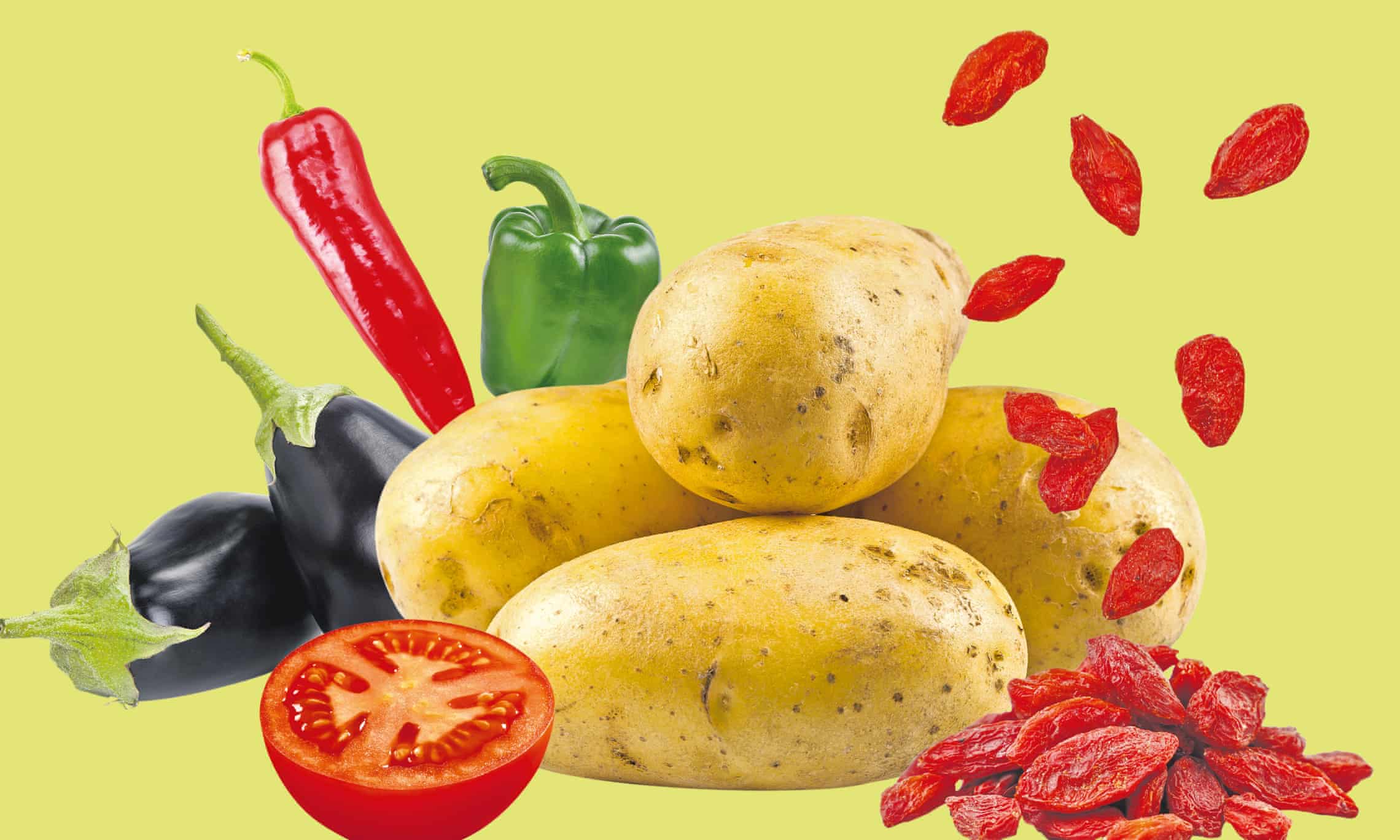
The latest foods in the line of fire are nightshades – a family of plants that includes potatoes, aubergines, peppers, chillies, goji berries and tomatoes. Despite the widespread popularity of nightshades, some celebrities and influencers recommend we cut them from our diet entirely due to the “toxins” they contain. These self-styled health gurus argue that nightshades could be harmful to our health, but dietitians and nutritionists don’t agree. When people talk about the toxins in nightshades, they are often referring to solanine, which is a type of chemical compound called a glycoalkaloid. This is a poison that the plants develop naturally to protect themselves from external threats such as pests. “The amount we eat isn’t enough to cause harm,” says Harry Snell, a nutritionist.
--from The Guardian
最新火紅的食物是茄科植物—一種包括馬鈴薯、茄子、甜椒、辣椒、枸杞和蕃茄的種群。儘管茄科植物廣受歡迎,但一些名人和具影響力的人建議我們完全將其從飲食中剔除,因為它們含有“毒素”。這些自封的健康專家認為茄科植物可能對我們的健康有害,但營養師和營養學家並不認同。當人們談論茄科植物中的毒素時,他們通常指的是茄鹼,它是一種稱為附醣化生物鹼的化合物。這是植物自然產生以保護自己免受害蟲等外部威脅的一種毒素。營養師Harry Snell說:「我們吃的量不足以造成傷害.」
--摘錄翻譯自The Guardian
Unesco recommends putting Venice on heritage danger list
聯合國教科文組織建議將威尼斯列入瀕危世界遺產名單
Culture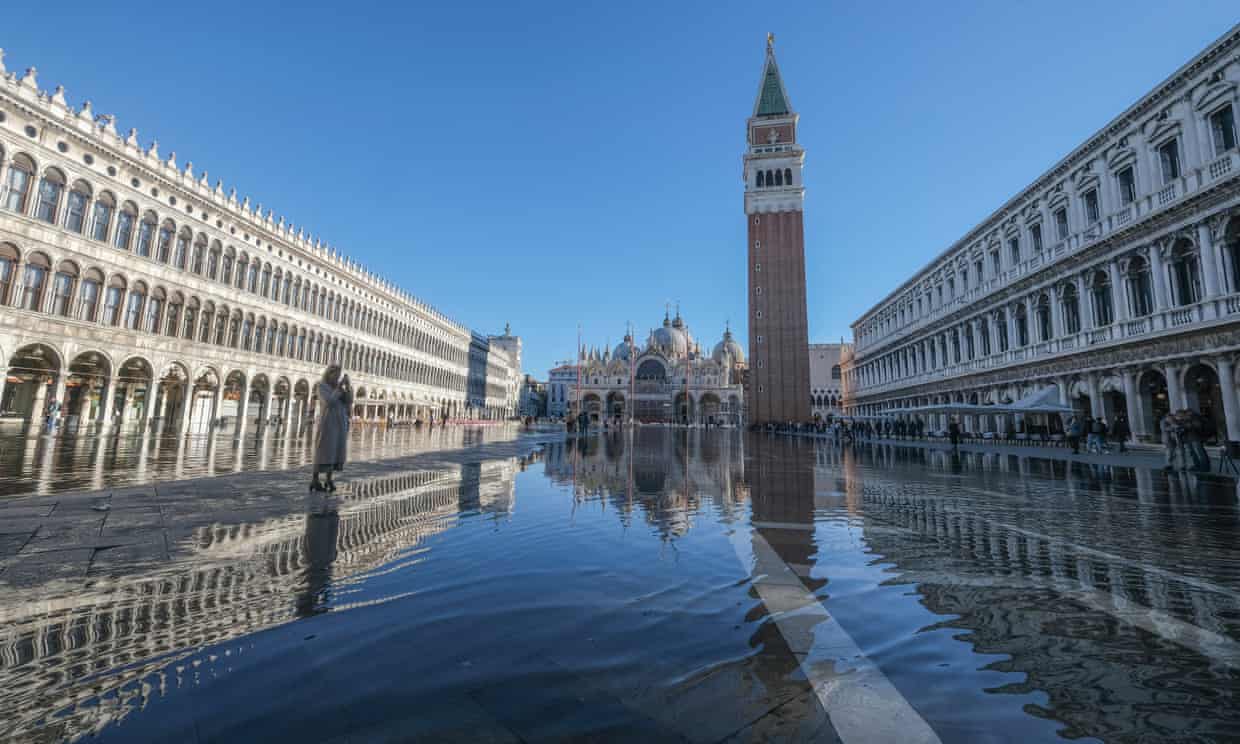
Venice risks being placed on the Unesco world heritage site blacklist unless the Italian authorities do more to protect the fragile city. It is the second time within the space of a few years that Venice, which was inscribed on the world heritage site list in 1987, has been threatened with the blacklist. Unesco said in a statement: “The effects of the continuing deterioration due to human intervention, including continuing development, the impacts of climate change and mass tourism threaten to cause irreversible changes to the outstanding universal value of the property. “Moreover, the combined effects of human-induced and natural changes are causing deterioration and damage to build structures and urban areas.” Unesco noted a “lack of significant progress” by Italy in addressing the issues, saying that improvements had been further “hindered by a lack of overall joint strategic thinking”. The recommendation will be put to a meeting of Unesco’s world heritage committee in Riyadh in late September for adoption.
--from The Guardian
除非義大利政府執行更多的措施來保護這座脆弱的城市,否則威尼斯將被列入聯合國教科文組織的瀕危世界遺產名單中。威尼斯自1987年被列入世界遺產名單之後,這是近幾年第二次被列入瀕危世界遺產名單。聯合國教科文組織於一份聲明中指出,「這些持續性的惡化影響皆來自人為的干預,其中包含持續開發、氣候變遷影響及大眾旅遊觀光,恐將對此有著傑出普世價值的遺產產生無法逆轉的改變。」並補充「此外,人為與自然變化的綜合影響,正導致建築結構和城市區域的惡化與破壞。」聯合國教科文組織也指出,義大利在解決這些問題上「缺乏重大進展」,並且「缺乏整體戰略思維」,因而改善工作進一步受到阻礙。此項建議將在今年九月底提交至在利雅德舉行的聯合國教科文組織世界遺產委員會。
--摘錄翻譯自The Guardian(衛報)
‘Worth the wait’: Sunday lunch at the Bristol pub with a four-year bookings backlog
值得等待:英國布里斯托餐廳的週日午餐需排隊等待四年
Culture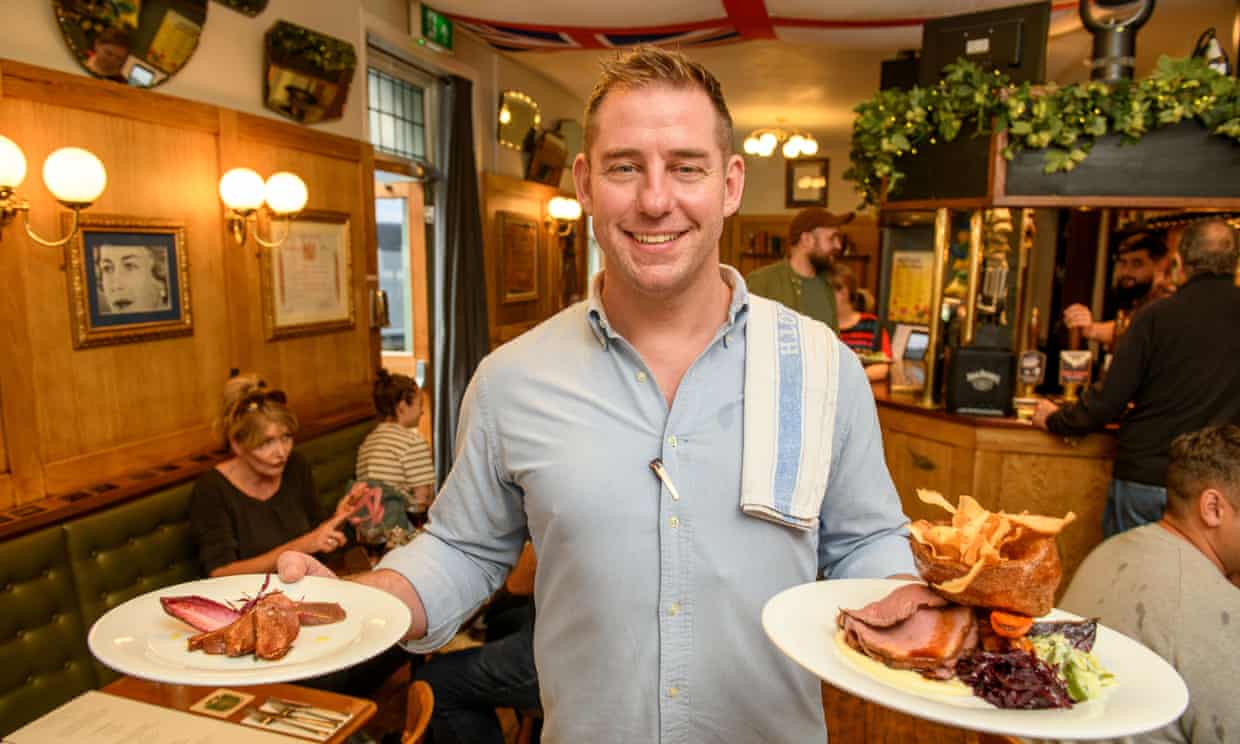
With customers waiting up to four years to sample its award-winning meals, the Bank Tavern in central Bristol looks to be one of the hottest tickets not just in town but anywhere. So popular are Sunday roasts at this 19th-century pub that it long ago closed its reservation system to new bookings. Only the very patient, lucky few have been able to secure one of the just seven tables inside for its famed Sunday roast sittings. Among them on Sunday were Vicki Leach and Lucy Weston, who had brought their son Milo, aged almost two. “We were asked if we had booked a high chair. And I said: ‘We didn’t have him when we booked the table,’” said Leach, a furniture restorer from nearby Brislington who had booked during lockdown and was not even pregnant then. Foodies have been travelling from across the UK since an Observer review praised its “crisped roast potatoes”, “puffed up Yorkshires” and meat sourced from West Country farms, including “piles of rose-hued beef, melting pork shoulder or plump chicken legs.”
--from The Guardian
由於顧客需要等待四年才能夠享用這屢獲獎項的餐點,使得位於布里斯托市中心的銀行餐酒館(Bank Tavern)不僅是這城市也是全球最熱門的餐廳之一。也因為這家餐廳從十九世紀就大受歡迎的週日烤肉,餐廳早就在先前關閉預約系統暫停接受新的訂位。只有極少數且幸運的顧客,能夠在僅有的七張桌子中獲得保留座位且享受其著名的假日烤肉套餐。最近一對夫妻Vicki Leach和Lucy Weston於週日帶著不到兩歲的兒子Milo去用餐,來自附近布里斯林頓的家具修復師Leach是在疫情封鎖期間預訂的,她也表示:「這次我們被詢問是否需要寶寶椅,而我表示當時我們根本也尚未懷孕。」自從觀察家美食月刊的一篇評論,稱讚其週日烤肉有「脆酥的烤馬鈴薯」、「蓬鬆的約克郡布丁」,以及從西部農場來的肉類餐點,包含有著「玫瑰色澤的牛肉」、「軟到像融化的豬肩肉」、「肥美的雞腿」,使饕客們從英國各地前來一探究竟。
--摘錄翻譯自The Guardian(衛報)
Playful behavior in rats is controlled by a specific area of their brains
老鼠的遊戲行為是由大腦的特定區域所控制的
Sciences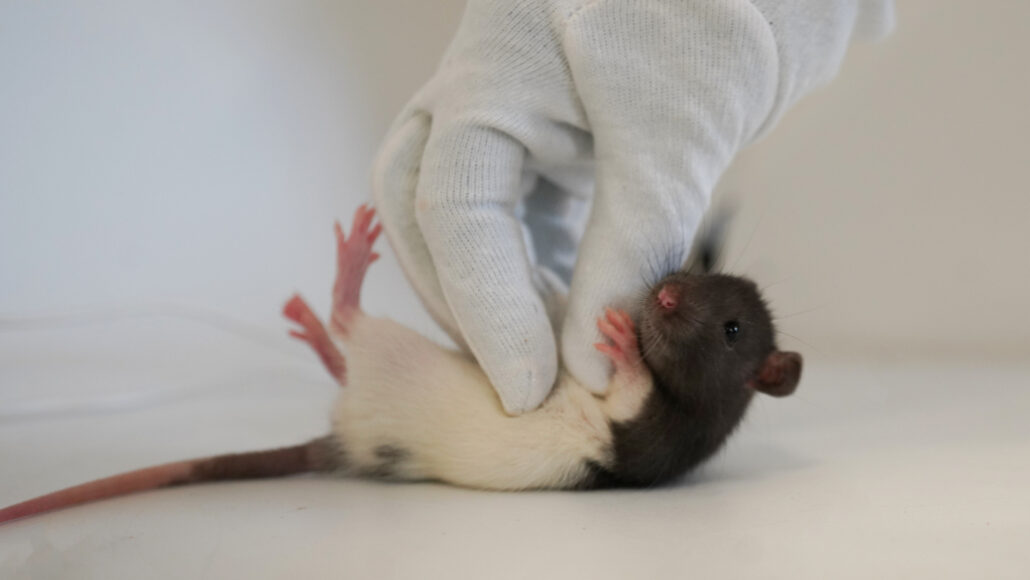
Rats are extremely playful creatures. They love playing chase, and they literally jump for joy when tickled. Central to this playfulness, a new study finds, are cells in a specific region of rats’ brains. Neurons in the periaqueductal gray, or PAG, are active in rats during different kinds of play, scientists report July 28 in Neuron. And blocking the activity of those neurons makes the rodents much less playful. The results give insight into a poorly understood behavior, particularly in terms of how play is controlled in the brain. “There are prejudices that it’s childish and not important, but play is an underrated behavior,” says Michael Brecht, a neuroscientist at Humboldt University in Berlin.
--from Science News
老鼠是非常頑皮的動物。它們喜歡玩追逐遊戲,被騷癢時它們還會開心到跳起來。一項新的研究發現,老鼠大腦內特定區域的細胞控制著這類遊戲行為。根據科學家們於 7 月 28 日在《Neuron》雜誌上的報導,老鼠從事不同類型的遊戲時其導水管周圍灰質(PAG)的神經元皆非常活躍。阻斷這些神經元的活動會使這些囓齒動物變得較不活潑。過去學界對於遊戲行為了解有限,而這些結果讓我們對於該行為有更深入的了解,特別是大腦對於該行為的控制機制。柏林洪堡大學的神經科學家Michael Brecht表示:「有些人認為遊戲很幼稚且不重要,但遊戲是一種被低估的行為。」
--摘錄翻譯自Science News
Ancient Roman cargo ship found on bottom of Mediterranean
地中海海底發現古羅馬貨船
Sciences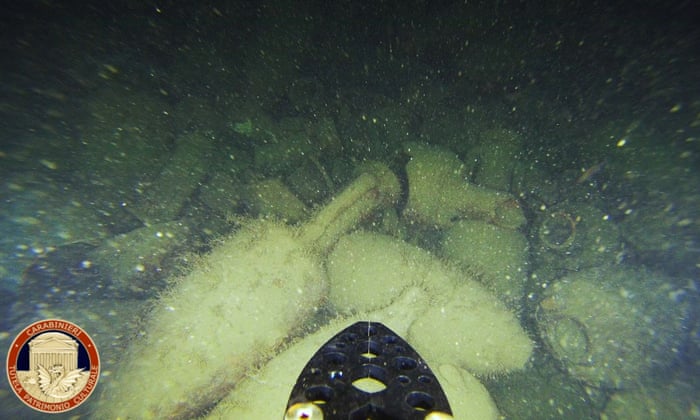
An ancient Roman cargo ship dating back to the first or second century BC has been found at the bottom of the Mediterranean in what has been described as an “exceptional” discovery. The vessel, which was loaded with hundreds of jars, was found at a depth of about 160 metres (524ft) close to Civitavecchia, an Italian port city about 80km (50 miles) from Rome. The discovery was made by archaeologists from Italy’s cultural heritage protection police squad and scuba divers from the national superintendency for underwater cultural heritage, an institution that protects and regulates underwater heritage sites.
--from The Guardian (Science)
地中海海底發現了一艘可追溯到公元前一世紀或二世紀的古羅馬貨船。此項發現被譽為「特別的」新發現。這艘載有數百個罐子的船隻在距離羅馬約 80 公里(50 英里)的義大利港口城市Civitavecchia附近約 160 米(524 英尺)的深度被發現。這一沉船遺跡是由義大利的文化遺產保護警察隊 (cultural heritage protection police squad)的考古學家們與國家水下文化遺產監管局 (National Superintendency for Underwater Cultural Heritage)的潛水員們所發現的。此監管局是一個保護和管理水下遺產的機構。
--摘錄翻譯自 The Guardian (Science)
